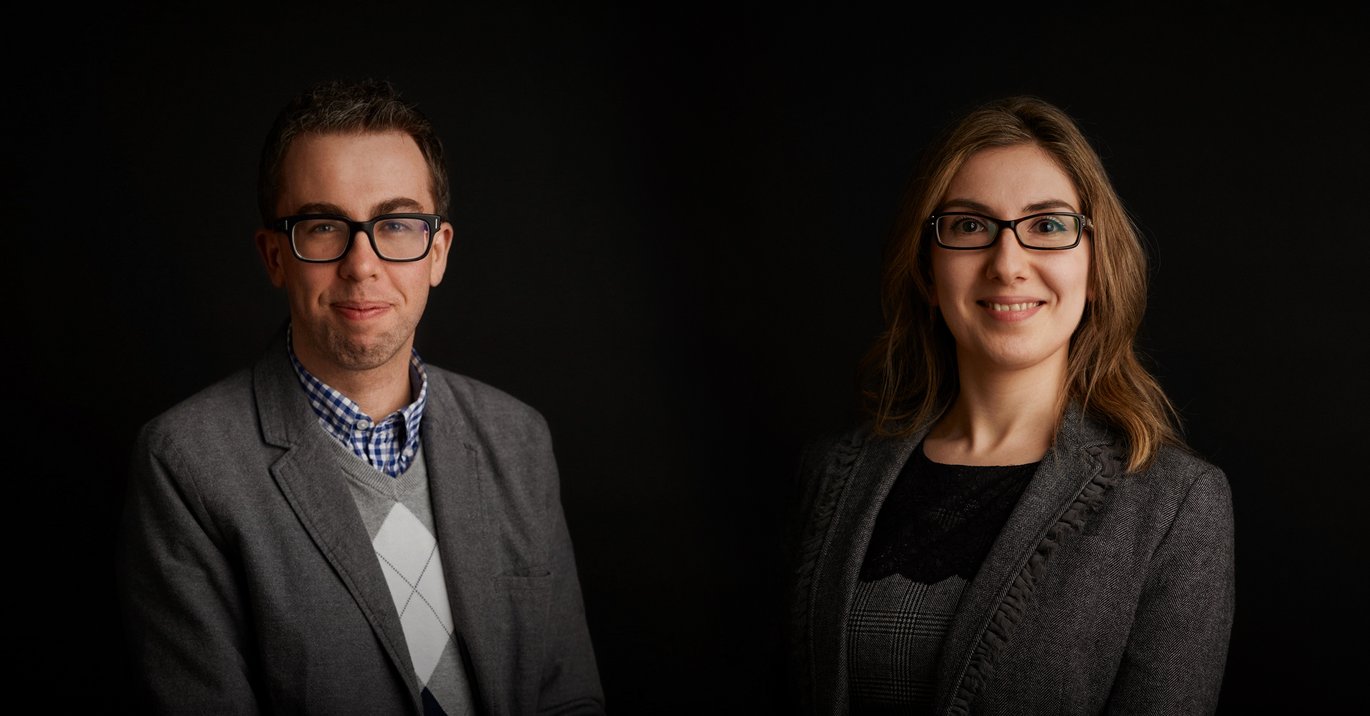Sapere Aude grants for two researchers at Aarhus BSS
Senior researcher Zeynep Yilmaz from the National Centre for Register-based Research and associate professor Graham Butler from the Department of Law have each received a Sapere Aude research leader grant of DKK 6.2 million from the Independent Research Fund Denmark.

Zeynep Yilmaz:
"The Sapere Aude grant will provide me with the opportunity to kick-start my research career in Europe by establishing my own research group within neurogenetics, which will enable me to bring all of my international research collaborations to Denmark," says Zeynep Yilmaz in an interview with the Independent Research Fund Denmark (DFF), adding:
“I am sure that the prestigious Sapere Aude programme will help me recruit the best and most promising young researchers in Denmark and abroad for my research group at Aarhus University."
In her Sapere Aude project, Zeynep Yilmaz will examine how to identify people with an elevated risk of severe and long-term anorexia nervosa at an early stage and initiate individualised treatment.
Anorexia nervosa is a serious psychiatric disorder which is difficult to treat and has the potential to become chronic if not detected and treated early on. For this reason, Zeynep Yilmaz hopes to change the course of the disease in those affected and reduce the disorder for them.
"Solving this jigsaw puzzle of different genetic and environmental risk factors, focusing on people with severe and long-term anorexia nervosa, can make a huge difference in the life of the millions of people around the world who are struggling with this fatal psychiatric disorder," Zeynep Yilmaz says to DFF.
In her project, Zeynep Yilmaz combines epidemiological data from Danish registers with existing genetic data in order to systematically investigate genetic and environmental risk factors which are associated with the severity of anorexia nervosa, and in order to examine the health-related and social effects of severe anorexia nervosa.
Zeynep Yilmaz has a PhD degree from the University of Toronto, Ontario, and has been employed as a postdoc and assistant professor at the University of North Carolina at Chapel Hill before she joined the National Centre for Register-based Research at the Department of Economics and Business Economics at Aarhus BSS, Aarhus University, in August 2020. She was born in the United States, but grew up in Turkey – the place where her interest in anorexia nervosa arose:
"As a child, I was deeply fascinated by psychology, and I remember flipping through encyclopedias and books from Mayo Clinic to read about psychiatric disorders. Eating disorders, especially anorexia nervosa, has always fascinated me in a societal and evolutionary perspective," she says to DFF.
Project title: Predicting Severe and Enduring Anorexia Nervosa and Associated Outcomes: Genes and Environment
Grant in total: DKK 6,188,150
-------------------------------------------------------------------------------------------------------------------------------------------------------------------
Graham Butler:
“To be awarded the Sapere Aude research leader grant is a mark of great recognition for someone’s research ideas, and their abilities to do such research. I am truly honoured to receive such a prestigious award from the Independent Research Fund Denmark, and am eager to continue learning, reading, and writing. Ever since I became an academic, my hunger and appetite to absorb more and create new knowledge has only become stronger. It is now time to realise the full potential of my research agenda. The resources that this award provides will enable me to lead a team of researchers, seizing the opportunity to craft an inimitable narrative in the field of European legal scholarship, and to place the research outputs at the heart of the research field,” says Graham Butler.
When discussion in EU law and EU legal studies (and other disciplines in the broader social sciences and the humanities) turns its attention to the Court of Justice of the European Union (CJEU) – the highest court in the EU, and the ultimate arbiter of legal disputes on matters of EU law – the institution is occasionally stylised and portrayed in the wrong light. By some, the CJEU is sporadically and improperly portrayed as an activist institution, with a pro-European integration approach to judicial decision-making. As an overarching claim or narrative, this is simply unseemly, and a perspective that does not stand up to wider scrutiny in the context of the broader case law of the CJEU. Rather, sadly, such assertions by some jurists, academics, and even the wider public, are expressions of a mere subjective viewpoint, politically driven and without any basis in law or reason. This project has an alternative approach, by adopting an entirely different course to understand the judicial role of the CJEU as a matter of EU law. Instead, the research undertaken in this project will elaborate how the CJEU acts in a minimalist (or passivist, conservative, and restrained) manner, in that it engages in judicial minimalism more often than is typically recognised and understood. Contrary to the aforementioned standpoint, this project will reveal that the CJEU engages in judicial minimalism; and will demonstrate that the CJEU is not necessarily activist nor passivist, but rather, is a minimalist court.
Project title:
Judicial Minimalism by the European Court of Justice: Passivism, Conservatism, and Restraint in EU Law
Facts
|
Read more about all the Sapere Aude grants at Aarhus University.
This article is based on press material from the Independent Research Fund Denmark.